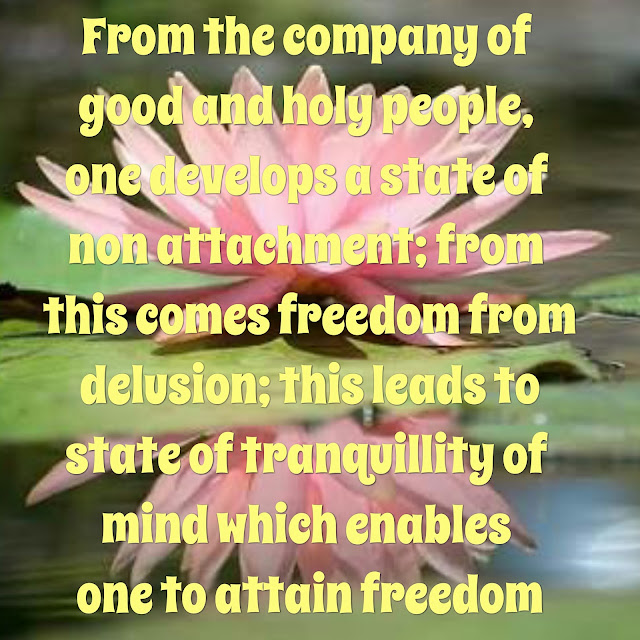Give up egoism and throw your whole burden of
anxieties on the Lord. Do total self-surrender to Him. You will attain His
grace. He will take care of you completely in all ways.
In difficulties and struggles, God will give
you strength and inner peace to bear them. This is His grace.
Constant remembrance of the Lord, constant
recitation of His Name will fill your heart with Sattva or purity and immense
strength and peace to face the most trying conditions with perfect calmness and
serenity.
Have perfect trust in God. Do total surrender
unto Him. Place yourself in His loving care. Do this with your whole heart and
mind, with perfect confidence and faith. Worry not about your future, about
money, about your health. He will take care of you. You will have plenty,
immense strength and wonderful health.
Repeat this formula very often with intense
faith: The Lord is my strength, my support and stay. You will derive strength,
power and peace.
After surrendering to the Lord, do not grumble
if you get difficulties and troubles. This goes against self-surrender.
God knows what is best for you. He does what
is best for you. His ways are mysterious. Know His mysterious ways and become
wise.
Egoism and desire are obstacles to
self-surrender. Slay these two enemies of self-surrender ruthlessly.
You may accuse Him now and say: He is not
just. He is cruel. He has no eyes. Vicious persons are thriving well in the
world. I am virtuous and I suffer. There is no God. Later on you will realise
that He has done the best thing for you.
Do not pray to the Lord for removal of
sufferings. Pray to Him for granting you power of endurance and patience to
bear the calamity.
A devotee remains unaffected by adversities,
trials and tribulations. He knows and feels that they are all Karmic purgations
and are the real messengers of God; he welcomes them calmly.
A devotee alone gets troubles and adversities,
because this is his last birth; many Karmas have to be worked out and he must
be united with the Lord in this very birth.
He gives immense patience and strength to His
devotee to bear troubles and calamities. The devotee is ever calm and cheerful.
He is not in the least affected by them as his mind ever dwells in the contemplation
of the Lord. He has no body-consciousness.
Murmur not, grumble not. Even a leaf cannot
move without the Will of God. What is destined to take place as willed by God,
takes place. Face every difficulty and the battle of life with a smile patiently
and heroically. Become a brave soldier. Become an Adhyatmic hero.
Troubles and difficulties come to intensify
your faith, to strenghten your will and power of endurance and turn your mind
more and more towards God.
Pain is a great eye-opener. It is your silent
teacher. It is the only best thing in the world. It will make you remember God.
Kunti prayed: O God! Lord Krishna! Give me pain always, so that I may ever
remember You.
The more troubles and adversities you get, the
stronger and firmer will become your faith in God. The worst troubles and
adversities that come to you have the greatest purpose and meaning in them.
They will mould you into a divine being. Welcome them and say: I am Thine, all
is Thine, Thy Will be done, my Lord.
Approach the Lord with Sarva-Bhava with all
your heart, mind and soul, with your whole being. Do not keep any reservation.
Do not keep any secret gratification. The mind, Chitta, intellect and the ego
should all agree to surrender wholly. You will be supremely blessed. You will
obtain His full grace.
Prahlada, Mira and Sakku Bai were tortured in
various ways. But the Lord gave them strength and peace. They did not feel
torture even a bit. He gave them Darshan and blessed them.
Lord's grace is in proportion to the degree of
self-surrender. The more the surrender, the more is His grace.






